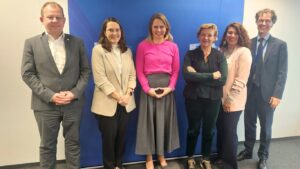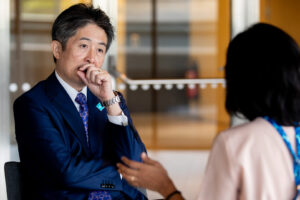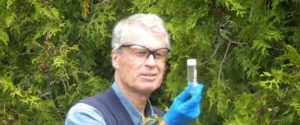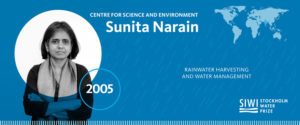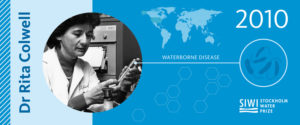Letting nature do the work for us
This blog was written by Professor Kartik Chandran, Member of the Stockholm Water Prize Nomination Committee.
It gives me great pleasure to celebrate this year’s Stockholm Water Prize 2018 and its co-recipients, Professors Bruce Rittmann and Mark van Loosdrecht.
Both Professors Rittmann and van Loosdrecht epitomize excellence and eminence in the core field of biological water and wastewater treatment as well as translation to real-world applications. Coincidentally, the doctoral work of both laureates (at Stanford for Prof. Rittmann and Wageningen for Prof. van Loosdrecht) focused on aspects of biofilms and microbial adhesion. Building on these (humble) foundations of microbial principles, over the following decades, they have together given rise to the field of environmental biotechnology and defined the directions and developments in this field through their trailblazing research.
While it would be trite to list the specific individual directions of their respective research efforts, one aspect stands out. Both laureates have grounded their work in the fundamentals and the first principles of microbiology, biotechnology and environmental engineering. From this, they have touched applications as disparate as biological drinking water treatment to energy-efficient wastewater treatment processes to production of biofuels and chemicals from waste streams to aerobic granular sludge. Many of their research efforts have been commercialized and now find practical application in the field today. One only has to look at the most significant developments in environmental engineering and biotechnology over the past few decades and the imprint of the two laureates is nearly omnipresent.
In addition to their research efforts, both laureates have trained numerous engineers, scientists and academics who carry on and expand their legacy. In addition, both have been extraordinarily generous with sharing their knowledge and helping young scientists and academics.
Today, the field of environmental biotechnology includes not just drinking water and wastewater but touches many related directions including energy, materials, food and human health. Today, researchers also have access to advanced tools to inspect and interrogate complex biological systems and ‘engineer’ them to achieve diverse goals. It is a given that as time progresses, environmental biotechnology may include even more directions and applications beneficial to humankind. However, this is the inexorable march of discovery and development in science, engineering and technology- once the doors have been opened by pioneers and progenitors.
On a more personal note, I feel especially fortunate to have interacted closely with both laureates as part of my own personal and professional journey. I thank them for directly enriching my own work and wish them many more further contributions, accomplishments and laurels.
Kartik Chandran
Professor, Columbia University




